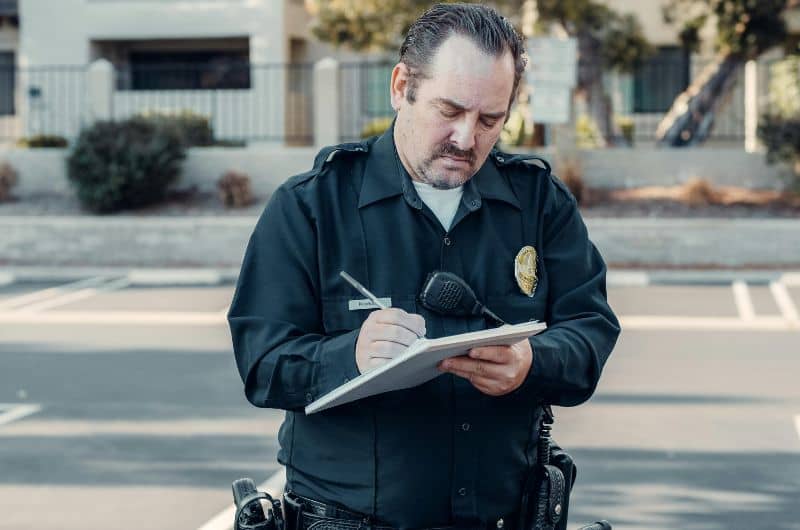Do Police Always Have to Read You Your Rights?

What Are Miranda Rights, and When Are They Required?
You’ve seen it dramatized countless times on TV crime shows – a suspect getting arrested, the detective firmly stating, “You have the right to remain silent…” But in real life, the rules around when police must issue those famous Miranda warnings are a bit more nuanced.
The Miranda rights stem from the 1966 Supreme Court case Miranda v. Arizona. In that landmark decision, the Court ruled that the Fifth Amendment protection against self-incrimination requires law enforcement to advise suspects of their constitutional rights prior to a “custodial interrogation.”
So what exactly does that mean? The Miranda warning must be given when two key criteria are met:
- You’re in police custody, meaning your freedom is deprived to the same degree as a formal arrest. This could involve being handcuffed, transported to a station, or simply not being free to leave.
- Police wish to interrogate you, asking questions designed to elicit an incriminating response about the alleged crime.
Only when both those conditions – custody and interrogation – exist simultaneously are officers legally obligated to Mirandize you by reciting the familiar warning about your rights to remain silent, have an attorney present, and so on.
When Are Miranda Warnings Not Legally Required?
You’re Not Formally Under Arrest or “In Custody.”
Despite common belief, getting questioned by the police alone doesn’t automatically trigger the need for a Miranda warning. You must first be in custody, meaning whatever situation leads a reasonable person to feel they are not free to simply terminate the encounter and walk away.
For example, let’s say an officer pulls you over for speeding or approaches you on the street to ask about a crime in the area. Courts have consistently ruled that temporary detentions like these do not constitute Miranda custody. So, statements you voluntarily provide before any formal arrest may be admissible in court, even without those iconic Miranda rights being read.
The key factor is whether, under the totality of circumstances, a reasonable person would have felt free to leave or end the interaction. Once you’re deprived of that freedom of movement to the same degree as an official arrest, even without literal handcuffs, the custody requirement is satisfied.
Police Are Not Interrogating, Just Asking Booking Questions
The second prong of the Miranda requirement involves police interrogation – questions designed to produce incriminating responses. But in many situations, officers may simply ask someone’s name, date of birth, address, and other basic biographical details without it constituting interrogation under the law.
These “booking questions” are exempted from needing Miranda as they’re not aimed at eliciting evidence of criminal behavior. Responses to identifying queries like these would likely still be admissible in court, even without those iconic rights being provided.
It’s an Emergency Public Safety Situation
There are a few limited exceptions where police can temporarily question someone without first Mirandizing them. One such exemption arises when interrogation is urgently needed to address an imminent threat to public safety.
For instance, if officers arrest someone suspected of planting explosives in a crowded area, they could legally question the suspect about the device’s location before advising them of their Miranda rights. The public safety exception permits a limited interrogation to neutralize any impending danger, after which proper Miranda warnings must be given prior to any further questioning.
You’re Not a Suspect (Yet), Just a Witness
Police only have a legal duty to Mirandize someone when that person becomes an actual suspect in a criminal case, and an interrogation is intended. Merely being a witness doesn’t trigger the need for those ubiquitous Miranda rights.
That said, the line can become blurred if you start making potentially incriminating statements while being questioned as a witness. At that point, a reasonable officer should stop and properly Mirandize you since the focus has now shifted to you as a suspect. To protect yourself, it’s wise to affirmatively state you wish to invoke your Fifth Amendment rights until you have legal counsel present.
Consequences of Police Failing to Read Miranda Rights
What happens if police blatantly fail to follow the Miranda rules by interrogating a suspect in custody without those iconic warnings? Ultimately, it’s the prosecution that will likely pay the price when the case goes to trial.
Statements obtained from an “un-Mirandized” custodial interrogation are generally inadmissible in court as evidence of guilt, thanks to the “exclusionary rule” established in that 1966 Miranda decision. A skilled criminal defense lawyer can easily prevent those statements from being heard by the jury, significantly weakening the prosecution’s case.
However, Miranda violations don’t automatically mean the entire case gets thrown out. A judge may still allow certain other evidence to be used at trial – it just depends on how it was obtained.
And those unwarned statements themselves may still potentially be admissible for more limited purposes, like establishing a timeline or attempting to impeach the defendant if they choose to testify and contradict their prior statements. But they cannot be used as direct evidence of guilt.
At the end of the day, relying solely on the Miranda violation as your silver bullet defense isn’t wise. Though asserting your rights is critical, the path forward will depend heavily on all the unique facts of your case.
So, if you find yourself a suspect being questioned in police custody, remain calm but refuse to answer any interrogation without first receiving those constitutionally-mandated Miranda warnings. Invoke your right to remain silent and demand legal representation – it is better to err on the side of protecting yourself.
That’s precisely why at The Nieves Law Firm, our battle-tested California criminal defense attorneys advise clients in detail on Miranda rights and appropriate protocols for interacting with police. If you’ve been arrested or charged with a crime, we can scour through every detail of your case, advise whether any rights were violated, and aggressively counter the prosecution’s claims with principled, client-focused defense strategies. Don’t navigate the system alone – get the zealous advocacy you deserve by contacting us for a confidential consultation on your legal options.



